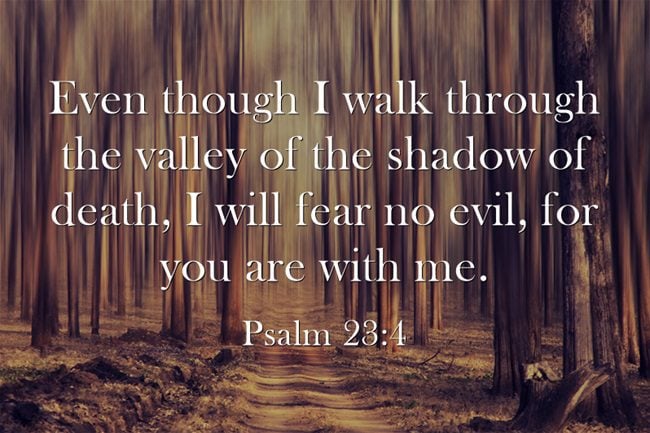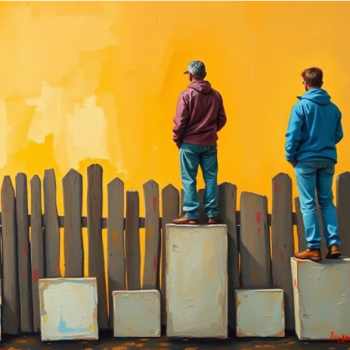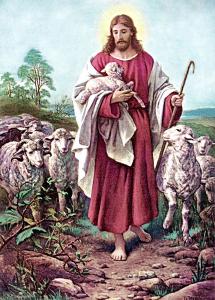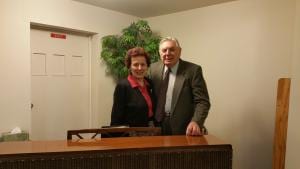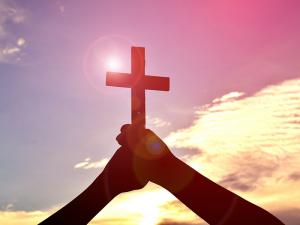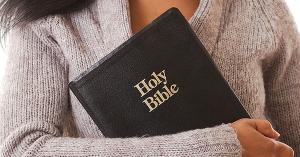What can we learn today from the 23rd Psalm which was written thousands of years ago?
Psalm 23:1
I want to go through one of the most popular and well known chapters in the entire Bible. It’s the 23rd Psalm, written by Kind David and reflects the experiences of a man who had gone through many valleys and had constant shadows of death enveloping him, yet he knew in the end that he would dwell in the house of the Lord forever. David writes that the Lord is his Shepherd, so for those who have not placed their trust in Christ, He is not their Shepherd. Unless He is your Savior, He is not your Shepherd. If He is not your Savior, then He will be your Judge someday (Rev 20). When the Lord is my Shepherd, we will lack for nothing because only He can bring satisfaction and I find that my satisfaction is in Him not in things, so why should I want for anything when I have all things in Him?
What experiences was David writing from?
Tell us about your own “valley of the shadow of death” experience in your life.
What “want” is David taking about in writing “I shall not want?”
Psalm 23:2
In this part of the 23rd Psalm, David writes, “He makes me lie down in green pastures. He leads me beside still waters” (Psalm 23:2), it’s almost as if the Good Shepherd makes him lie down in green pastures, as if sheep don’t have enough sense to move to greener pastures without being led. Since sheep are afraid of moving water, the significance of “still waters” is not lost on David’s thoughts. He knows that he doesn’t always follow God’s lead and doesn’t always know where to feed on the greener pastures. Sheep have been known to stay in one spot until they begin eating down to the roots, destroying the pasture in the process, and sheep are about the most defenseless animals there are. They can’t defend themselves, they can’t run fast, and if frightened, they can even have heart attacks, and a sheep that gets in the water can drown since their wool acts like a sponge, so needless to say, sheep can’t swim.
What is “still waters” in your life?
Why does David say he needed to be lead to green pastures?
Why does David write that God leads him “besides still waters” instead of “to still waters?”
Psalm 23:3
Kind David continues in this special Psalm by writing “He restores my soul; He leads me in the paths of righteousness For His name’s sake” (Psalm 23:3) and David’s point is that it is God alone Who restores our soul and it needed it because we were dead in sins (Eph 2:1-1) and needed quickening (or be made alive) by God’s Spirit. The word for “restore” in Hebrew is “shuwb” and it means “to return” or “to turn back” and that sounds a lot like repentance, but the point is David knew Who deserved the credit for restoring his soul, and it wasn’t him, but God. Next, God leads him into the paths of righteousness, which is what Jesus imparts on our behalf (2nd Cor 5:21), so indeed He does lead us into the paths of righteousness and it is “for His name’s sake” and not ours. We don’t have enough sense to find the right path, but God, through Jesus Christ, leads us to the path of righteousness, which leads to eternal life in Christ.
Was David referring to his salvation or the path that God wants him to take in writing, “He leads me in the paths of righteousness?”
What does it mean to you that God “restores” the soul?
Does this speak of eternal life or of the physical needs?
Psalm 23:4
David writes, “Even though I walk through the valley of the shadow of death, I will fear no evil, for you are with me; your rod and your staff, they comfort me,” so David is telling us that he was in the shadows of death when running from King Saul who continually wanted to kill him. He still feared no evil at all because He know that God was with him, but the Good Shepherd as a rod and a staff, and these are used for different things. My uncle is a sheep farmer and he says that the rod was used to discipline the wayward sheep and get them back onto the right path…the path that leads to greener pastures while the staff, which has a crook on it, can be used to pull the sheep back by the neck when they are going the wrong way and resisting the shepherd, so the rod is used for sheep as well as the staff, but the rod also keeps predators away and is used to defend the lives of the sheep.
In what ways are we like sheep (Isaiah 53:6)?
Why did David say he was in “the valley of the shadow of death?”
What’s the difference between a shadow and the thing that casts the shadow?
Can you say in your heart, “I will fear no evil, for You are with me?”
What does that sentence mean?
Psalm 23:5
David wrote, “You prepare a table before me in the presence of my enemies; you anoint my head with oil; my cup overflows” (Psalm 23:5), so God has prepared something for us…and perhaps it’s a vague reference to the great banquet coming in the kingdom, which is the Marriage Feast of the Lamb of God when the Bridegroom, Jesus Christ, marries His Bride, the church. Many who believe they are Abraham’s children did not understand in Jesus’ day that it’s not about race but about God’s grace, and the kingdom will consist of every nation, tribe, and tongue. God’s anointing David’s head with oil may represent the Holy Spirit and His cup overflowing is a reference to the custom of the ancient Israelites that when a guest comes over, they keep the cup overflowing, which means they can stay as long as the cup is overflowing or filled to the brim to the point of running over the cup.
What part of your life seems to be “overflowing?”
Who are the “enemies” David writes about?
Why is a table prepared for us and before his enemies?
Psalm 23:6
In the very last verse of Psalm 23, David writes, “Surely goodness and mercy shall follow me all the days of my life, and I shall dwell in the house of the Lord forever,” so goodness and mercy will follow me and you, even when we stray off the path. The word “surely” means “with certainty” and this goodness and mercy stay with us even when we don’t deserve it. To me, mercy is where I don’t get what I do deserve and His goodness or grace is what I do get but don’t deserve. With this, you and I will dwell with the Lord forever because we have eternal life as we were born from above (John 3:3), so this means I won’t have to die but one more time. I’ve heard it said that if a person is born once, they’ll die twice, but if they’re born twice, they’ll die only once. That second birth is from above and since this second birth is promised to all who believe in Him. Those that do will dwell or live with Him forever. The Lord is My Shepherd. Is He yours? If He isn’t, then He’ll be your Judge. Decide today, if you haven’t already, to make Him your Shepherd. Then “goodness and mercy” will surely follow you in this life and in the life to come.
Why does David say “goodness and mercy” follow him?
What is the dwelling place we shall dwell in that David spoke about for those who have trusted in Christ?
What does God’s “goodness” represent?
How is God’s mercy displayed for us who believe?
Article by Jack Wellman
Jack Wellman is Pastor of the Mulvane Brethren Church in Mulvane Kansas. Jack is also host of Spiritual Fitness and Senior Writer at What Christians Want To Know whose mission is to equip, encourage, and energize Christians and to address questions about the believer’s daily walk with God and the Bible. You can follow Jack on Google Plus or check out his book Teaching Children the Gospel available on Amazon.

